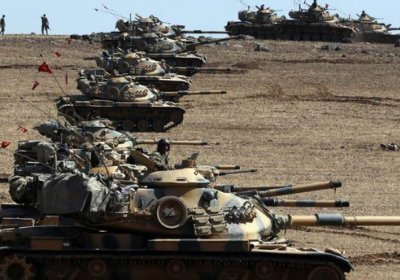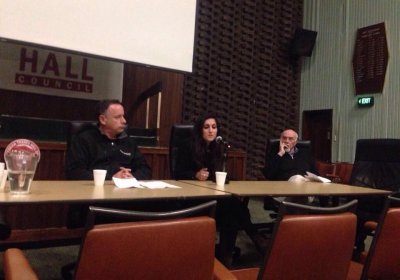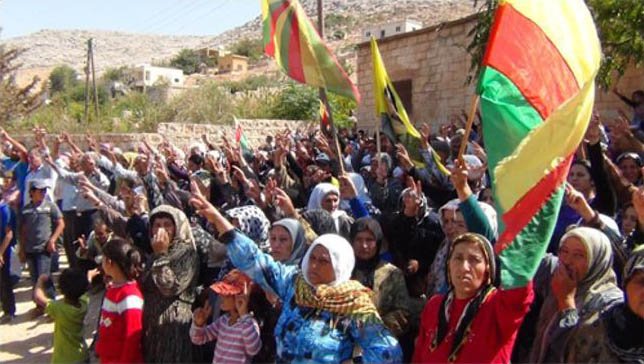The Socialist Alliance released the statement below on December 18.
The capture of formerly rebel-held East Aleppo by the forces of the Bashar Assad dictatorship and its foreign allies has been hailed by Assad and his Russian and Iranian backers as a decisive victory over their opponents that will end the war that has devastated the country since Assad used military force against a civilian protest movement in 2011.






 Qamişlo, July 27.
On the morning of July 27, a bomb-laden truck exploded in a crowded area of Qamişlo in Rojava (northern Syria). This terrorist massacre, claimed by ISIS, killed at least 44 people and left about 150 injured. Many surrounding buildings were destroyed, and among the dead were a number of women and children.
Qamişlo, July 27.
On the morning of July 27, a bomb-laden truck exploded in a crowded area of Qamişlo in Rojava (northern Syria). This terrorist massacre, claimed by ISIS, killed at least 44 people and left about 150 injured. Many surrounding buildings were destroyed, and among the dead were a number of women and children.

 On March 17, after a two-day meeting held in the town of Girkê Legê (Al-Muabbada) in Rojava (Syrian Kurdistan), a Constituent Assembly established a “Rojava-Northern Syria Democratic Federal System”.
The Constituent Assembly was attended by 31 parties and 200 delegates representing Rojava's Kobanê, Efrîn and Cizîrê cantons and the Kurdish, Arab, Assyrian, Syriac, Armenian, Turkmen and Chechen peoples of Girê Spî (Tal Abyad), Shaddadi, Aleppo and Shehba regions.
On March 17, after a two-day meeting held in the town of Girkê Legê (Al-Muabbada) in Rojava (Syrian Kurdistan), a Constituent Assembly established a “Rojava-Northern Syria Democratic Federal System”.
The Constituent Assembly was attended by 31 parties and 200 delegates representing Rojava's Kobanê, Efrîn and Cizîrê cantons and the Kurdish, Arab, Assyrian, Syriac, Armenian, Turkmen and Chechen peoples of Girê Spî (Tal Abyad), Shaddadi, Aleppo and Shehba regions.


